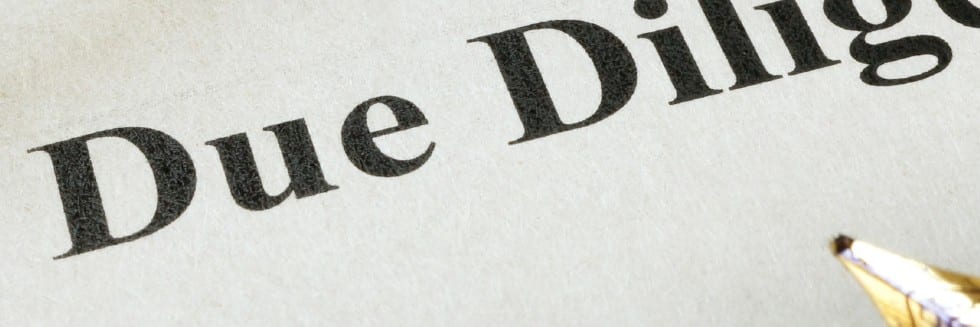Why Do You Do It?
When you hear the words “due diligence,” you think of a big thick law book. It is a legal term and one that you should be familiar with when buying or selling a home. This article discusses the idea of due diligence in real estate and how it applies to both the buyer and seller.
What is Due Diligence?
Due diligence means thoroughly researching to make sure your home is a good investment. It’s an assessment of the home’s structure and value. In other words, it means to do your homework before you buy.
You’ll want to look for clouds on the title, faults in the property’s construction, major damage, water damage, neighborhood conditions, cash flow, and other aspects of a real estate property’s value. Focus on making a good investment and try to separate yourself from your emotions when buying a home. It can save you thousands.
When you think of due diligence, the first thing that comes to mind is most likely a home inspection. And you’re right! Home appraisal and home inspection give you important information about the home’s condition and value. If a home isn’t worth the sales price, then you’ll want to find another property that does.
If you do place a bid on a wrecked home with numerous repair issues, then you can either negotiate a lower price or pull out of the deal altogether as long as you include a contingency with your real estate offer. That’s an important tip that you need to keep in mind here. Always include a real estate offer contingency when buying a home. This protects your earnest money deposit during this due diligence process. The home inspection and appraisal are just the beginning of the due diligence process. Read on to take a deeper dive into due diligence.
What Do You Do During the Due Diligence Process?
The most common steps to the due diligence process are:
- Neighborhood research
- Flood insurance
- Buy title insurance
- Home inspection
- Home appraisal
- HOA fee evaluation
- Examine cash flow
Neighborhood Research
You’ll want to find out what the crime rate is for this particular neighborhood as well as the noise level. Is it located near an airport? If so, are you okay with hearing the roar of planes taking off and landing all day and night?
As far as crime rates go, you’ll need to consider the neighborhood alone, not just the section of town because crime is often on a block by block basis. In other words, one street may be crime-free while the next one over is not. When researching the neighborhood, look at income levels, demand for the area (vacancy rate), and age demographics. Is it a senior-friendly neighborhood? Some neighborhoods are suited to meet the needs of the elderly. If you’re buying a home to be used as a rental property, all of these factors will help you determine your future cash flow.
Cash Flow
If you’re investing in a home as a rental property, consider the precise real estate cash flow that you’ll earn on the property. Factor in the points we made earlier about the neighborhood along with these other factors that may affect cash flow:
- Property taxes
- Property insurance
- Property management expenses
- Repairs and maintenance
- Rent default insurance
- Vacancy rate
- Monthly mortgage payment
Home Inspection
A home inspection is a crucial step in the due diligence process. Professional home inspectors can easily spot hidden damages and foundation issues in a home. This can save you a lot of heartache and money down the road. You’ll want to also find out how old the HVAC system is and test for radon, asbestos, mold, and lead paint. Make sure to attend the home inspection, too. The key here is to know before you buy.
Title Insurance
Buying title insurance is essential when buying a home. It safeguards you from potential title faults and hidden liens. A title search verifies the ownership of the home and can tell you if there are any liens or defects in the title’s history.
Consult a Property Manager
Due diligence is the smartest step you can take when buying your next home. It is important to learn all aspects of a property along with the finances involved with the sale. Due diligence can save you thousands of dollars and prevent you from buying a “lemon” in the housing market.
Make sure you do your “homework” or due diligence before committing your earnings and savings to the purchase of a property whether it’s an investment property or a personal home purchase. It’s a good idea to consult with an experienced real estate professional along the way, too. Oak City Properties has been helping hundreds of people like you buy their next home. We buy and sell homes in Raleigh and surrounding areas as well as manage properties.
At Oak City Properties, we have been helping those in the Raleigh area purchase and sell homes for years! Whether you are a family trying to sell your home or a landlord wanting to downsize your rental portfolio, our full-service property management company is here to help.
If you are interested in learning more about our services or speak to our listing agents, give us a call at (919)-232-9222 or check out our website: https://oakcityproperties.com
Want to read more? Take a look at the following blogs about property management services.

